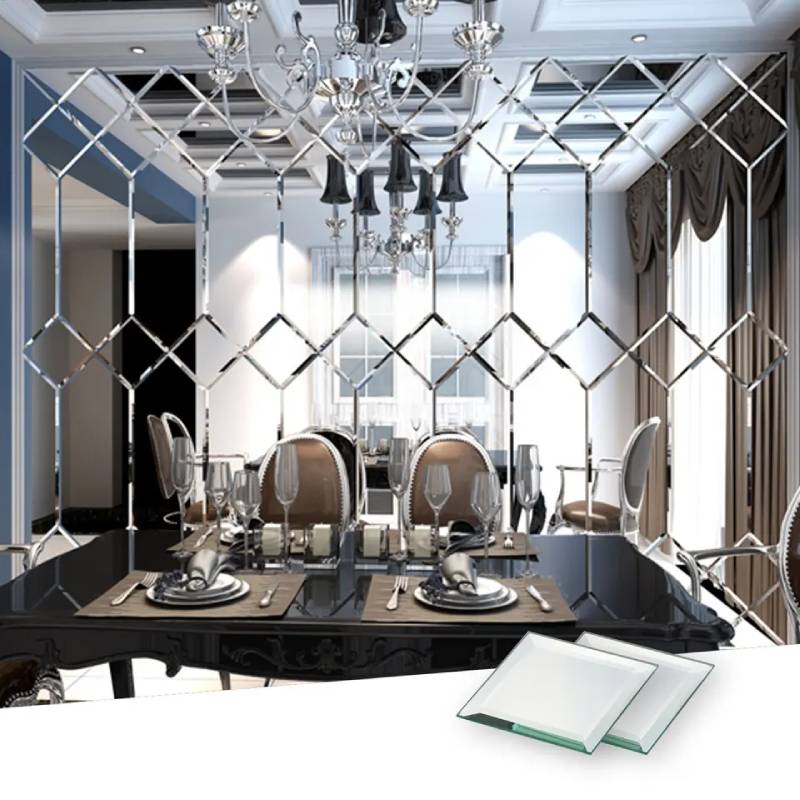Understanding Quality Tempered Glass Properties, Applications, and Benefits
Tempered glass, also known as toughened glass, is a type of safety glass that has been treated through controlled thermal or chemical processes to increase its strength. The quality of tempered glass is paramount, as it dictates not only the safety and durability of the material but also its suitability for various applications. This article delves into the qualities of tempered glass, its manufacturing process, applications, and the myriad benefits it offers.
What is Tempered Glass?
Tempered glass is produced by heating standard glass to over 600 degrees Celsius and then rapidly cooling it. This process strengthens the glass and enhances its resistance to impact, thermal changes, and other forms of stress. One of the defining qualities of tempered glass is that when it breaks, it shatters into small, blunt pieces rather than sharp shards, reducing the risk of injury.
Key Properties of Quality Tempered Glass
1. Strength and Durability The thermal tempering process increases the strength of the glass by almost five to six times compared to untempered glass of the same thickness. This durability makes it an ideal material for environments where safety and performance are essential.
2. Thermal Resistance Quality tempered glass can withstand significant temperature fluctuations and thermal stress. This property makes it suitable for applications in hot or humid environments, such as glass doors in restaurants and windows in skyscrapers.
3. Safety One of the most significant advantages of tempered glass is safety. As mentioned earlier, when it breaks, it crumbles into small, less dangerous pieces. This feature makes it a preferred choice for public spaces, appliances, and vehicles.
4. Optical Clarity Quality tempered glass maintains high optical clarity, making it an excellent choice for applications where visibility is crucial. This clarity is valuable in architecture, automotive design, and furniture manufacturing.
5. Chemical Resistance Tempered glass is generally resistant to chemicals and environmental factors. This quality ensures that it can be used in diverse settings, including laboratories, kitchens, and outdoor installations.
Applications of Tempered Glass
Tempered glass has a wide range of applications across various industries due to its exceptional properties
quality tempered glass
- Architectural Applications In buildings and homes, tempered glass is extensively used in windows, doors, facades, and railings
. Its strength and aesthetic appeal make it a popular choice for modern architecture.
- Automotive Industry In cars, tempered glass is commonly used for side and rear windows for safety and durability. Glass used in sunroofs is often tempered to withstand temperature variations and impacts.
- Interiors and Furniture Tempered glass is frequently used in furniture, such as tabletops and shelves, as well as in shower doors and bathroom installations due to its strength and visual appeal.
- Industrial Uses In industrial settings, tempered glass is utilized in machinery guards and protective screens, providing safety while maintaining visibility.
Benefits of Quality Tempered Glass
Choosing quality tempered glass for your projects brings numerous benefits
1. Enhanced Safety Its ability to break into dull pieces significantly reduces the risk of injury, making it an ideal choice for environments with high foot traffic or children's play areas.
2. Energy Efficiency Tempered glass can improve energy efficiency in buildings through better insulation when used in double-glazing applications.
3. Aesthetic Appeal The clarity and smoothness of tempered glass contribute to a modern and elegant look in any design, enhancing the overall aesthetics of spaces.
4. Cost-effectiveness While the initial cost of tempered glass may be higher than regular glass, its durability and long lifespan often translate to lower replacement costs and fewer maintenance issues in the long run.
In conclusion, quality tempered glass stands out for its strength, safety features, thermal resistance, and aesthetic appeal. Its versatility allows it to be used across various applications, from architecture to automotive, making it a critical material in today’s industry. When selecting glass for a project, considering the benefits of quality tempered glass can lead to safer, more efficient, and visually appealing outcomes. Whether for residential, commercial, or industrial use, tempered glass remains a staple choice that strikes a balance between functionality and design.
 Afrikaans
Afrikaans  Albanian
Albanian  Amharic
Amharic  Arabic
Arabic  Armenian
Armenian  Azerbaijani
Azerbaijani  Basque
Basque  Belarusian
Belarusian  Bengali
Bengali  Bosnian
Bosnian  Bulgarian
Bulgarian  Catalan
Catalan  Cebuano
Cebuano  Corsican
Corsican  Croatian
Croatian  Czech
Czech  Danish
Danish  Dutch
Dutch  English
English  Esperanto
Esperanto  Estonian
Estonian  Finnish
Finnish  French
French  Frisian
Frisian  Galician
Galician  Georgian
Georgian  German
German  Greek
Greek  Gujarati
Gujarati  Haitian Creole
Haitian Creole  hausa
hausa  hawaiian
hawaiian  Hebrew
Hebrew  Hindi
Hindi  Miao
Miao  Hungarian
Hungarian  Icelandic
Icelandic  igbo
igbo  Indonesian
Indonesian  irish
irish  Italian
Italian  Japanese
Japanese  Javanese
Javanese  Kannada
Kannada  kazakh
kazakh  Khmer
Khmer  Rwandese
Rwandese  Korean
Korean  Kurdish
Kurdish  Kyrgyz
Kyrgyz  Lao
Lao  Latin
Latin  Latvian
Latvian  Lithuanian
Lithuanian  Luxembourgish
Luxembourgish  Macedonian
Macedonian  Malgashi
Malgashi  Malay
Malay  Malayalam
Malayalam  Maltese
Maltese  Maori
Maori  Marathi
Marathi  Mongolian
Mongolian  Myanmar
Myanmar  Nepali
Nepali  Norwegian
Norwegian  Norwegian
Norwegian  Occitan
Occitan  Pashto
Pashto  Persian
Persian  Polish
Polish  Portuguese
Portuguese  Punjabi
Punjabi  Romanian
Romanian  Russian
Russian  Samoan
Samoan  Scottish Gaelic
Scottish Gaelic  Serbian
Serbian  Sesotho
Sesotho  Shona
Shona  Sindhi
Sindhi  Sinhala
Sinhala  Slovak
Slovak  Slovenian
Slovenian  Somali
Somali  Spanish
Spanish  Sundanese
Sundanese  Swahili
Swahili  Swedish
Swedish  Tagalog
Tagalog  Tajik
Tajik  Tamil
Tamil  Tatar
Tatar  Telugu
Telugu  Thai
Thai  Turkish
Turkish  Turkmen
Turkmen  Ukrainian
Ukrainian  Urdu
Urdu  Uighur
Uighur  Uzbek
Uzbek  Vietnamese
Vietnamese  Welsh
Welsh  Bantu
Bantu  Yiddish
Yiddish  Yoruba
Yoruba  Zulu
Zulu 

